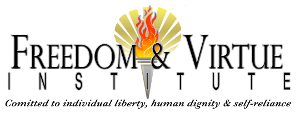The standard definition of privilege is a special right, advantage, or immunity granted or available only to a particular person or group. Using that definition, we can say a few things about the use of the concept on areas such as race—an example being the in theory of “white privilege.”
First, as there are no two persons who are equal biologically, advantages and immunities are part of the human condition. We are all privileged as compared to some and “disadvantaged” as compared to others. Some humans are taller or shorter, of one color or another, with different drives, basic tenor or character and a diversity of mental powers. I do not see a duty for society as a whole to equalize every difference, as such would be to deny human nature and engage in an impossible task. The diversity of endowments among humans is a gift, not a hindrance. But this diversity implies, to use the term we are discussing, privileges or advantages and disadvantages. Our task is to accept them, not to create social contraptions that attempt at reworking the realities of existence.
When it comes to social privileges, they exist and they are impossible to quantify. If you were born in the year 2000 instead of, say, 1400, you would live longer and better (technology privilege); if you are born in America instead of Europe, you will have a number of social privileges and also disadvantages; if you were born to a black middle class family, you will have a number of privileges as compared to a poor white family; if you are a citizen, you will have some privileges as compared to non-citizens; if you are studious, you will have a privilege over those who choose not to study. Even on the said dichotomies we can invert the relationships depending on a number of geographic, demographic and contextual elements. We can add literally thousands of cases.
Even in areas of life, and pertaining to specific groups, where we can observe obvious differences to others in social life it is not always easy to pinpoint the reasons and even less to find solutions. We know, for example, that intact families tend to do better. But that is not always the case. More importantly, we don’t necessarily know how to fix the problem!
What is interesting is that in some respects, we are all privileged and we are underprivileged in other respects. Yes, due to remnants of historical injustices one might say that certain classes, in general, will have certain social obstacles while other classes will not. It is also true that a number of social realities and possibilities can offset or exacerbate the advantage/disadvantage relationship. Some of these advantages are now cultural and at times they hinder certain groups (such as races) and at times they benefit the same groups.
As cultures develop, we can hope that whatever attitudes remain in the culture and might be coated with injustice will disappear. We can do more than hope, we can strive to change such attitudes. But there should not be any type of formal top-down arrangement to eliminate these differences. One reason is that there is a diversity of opinions on how to address these situations and what is the substantive reality being addressed. Another is that government possess certain powers that instead of facilitating the necessary systemic processes of dialogue and encounter, tend to hammer down solutions based on who holds power. The possession of power to impose an agenda only hinders the very process of finding solutions.
We cannot unscramble the intricacies of social reality. I know that is not what many want to hear, we prefer to entertain the thought that we have what it takes. Utopian expectations for our own capacities to discern are not helpful. That means we don’t really know where to place every piece of the social process because culture—and men acting in culture—is an inscrutable maze of antecedent and actual interactions and influences. We do not possess the mental capacity to fix reality—even less, the knowledge that where we want reality to go is where it should be. One thing is to pontificate, as John Rawls did in his famous Theory of Justice, saying that undeserved inequalities call for redress” and another is to proclaim that we know how to do it.
What are our real options instead of the cosmic alternative? The option is a society of formal rights. We should strive for equality under the law and for equal treatment in terms of the same rules for everyone under the same circumstances. Formal equality is very different than disparate impact equality. That latter sort of equality, also termed absolute or substantial, is the kind that assumes we can unscramble the egg of history and causality on the basis of ideological presuppositions. It is not based on possessing the knowledge of how to do accomplish the task of eliminating injustice but on having certain ideological attachments. This is dangerous territory that never accomplishes its intended goal and often inaugurated deeper inequalities and injustices.
Should we surrender a desire to help beyond striving for a more perfect system of formal rights? No. But we should surrender the belief that the state and the law is the one that must strive in that direction. It is the task of voluntary, private associations to find ways to help each other and transform the culture. The problem with the state performing that task is that it often ends imposing on all the ideological bent of those in power. In the American context, the federal government is the one whose interventions ought be more limited in terms of the quest for cosmic solutions, as it is the more detached, less local structure of governance


